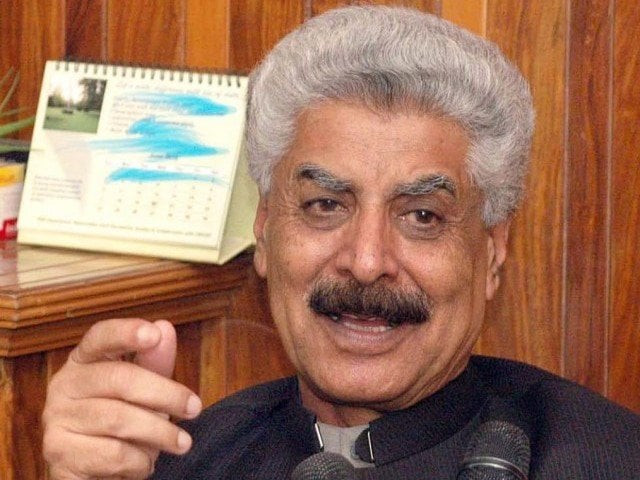Time is ripe to discuss future of FATA
SAFRON minister says work is under way to address grievances of tribespeople

SAFRON minister says work is under way to address grievances of tribespeople. PHOTO: FILE
Not only that, he also allowed the voice of the tribal youth, who are demanding the merger of Fata with K-P, to reach the public. Abdul Qadir is one of five members of the special committee constituted by Prime Minister Nawaz Sharif for reforms in the tribal areas. Since it is all work in progress, Abdul Qadir believes it is the right time to talk about the issues related to tribespeople and their areas.
The right solution
Recently, Abdul Qadir responded to a question of Lieutenant General (retd) Abdul Qayyum in the Senate. He said the committee surveyed all seven tribal agencies and even took into account the views of those from Frontier Regions. Qadir said the committee’s report was in its final stage and would be presented to the prime minister.
However, he revealed the committee recorded two different recommendations in separate meetings with tribal elders. One side wanted to continue with the old jirga system, while the youth was in favour of merging Fata with K-P.
In his first-ever statement at a high-level forum, the federal minister confirmed there were a host of challenges to overcome. Finding ways and means to reform the existing FCR and formation of committees have all been in process for a long time. All these bodies and commissions made comprehensive recommendations, but unfortunately nobody attempted to implement them, thus disappointing tribespeople who want to live like the rest of the country.
Former prime minister Zulfikar Ali Bhutto was the first one who initiated certain steps in the early 1970’s, enabling tribespeople to own properties in settled districts throughout the country and get employment.
Raising a voice: Abolish FCR, demand tribespeople
Similarly, steps were taken by Benazir Bhutto in the mid 1990’s when her government declared tribespeople could vote without any discrimination. After winning the game of musical chairs in the late 1990’s, former military ruler Pervez Musharraf made countless promises about reforms in Fata. However, the outcome was nothing more than further disappointment for tribespeople.
Long journey
Unjust laws in the tribal areas were an outcome of ulterior motives.
Having been pushed out of Afghanistan, British rulers continued to create rifts among Pukhtuns. After division on the basis of Durand Line, the British colonial rulers formally established an administrative network in the declared buffer zone now called Fata.
Khyber Agency was the first one established in 1873, but the FCR was promulgated in 1901 to run its affairs. The FCR has its origins in the Murderous Outrages Regulations Act, 1877, enacted by the British. After facing resistance in the Pukhtun-dominated areas, British rulers devised the FCR to counter resistance. The main objective was to ensure safety to the colonial rulers’ interests in the region.
Although the British rulers succeeded in disintegrating the Pukhtuns by signing the Durand Line agreement, their law has been facing opposition from day one, whereas the resistance to the creation of tribal areas and FCR intensified soon after Partition in 1947.
After the inception of Pakistan, only a few nationalist politicians and parties were demanding reforms, but now almost all of them want the FCR to be abolished and to see Fata merged in K-P.
Scholars and experts have always opposed the establishment of a separate province for Fata on technical grounds. The tribal areas’ merger in K-P could help in settling a host of issues, particularly violence, terror, law and order and border management with Afghanistan.
Published in The Express Tribune, June 13th, 2016.













COMMENTS
Comments are moderated and generally will be posted if they are on-topic and not abusive.
For more information, please see our Comments FAQ